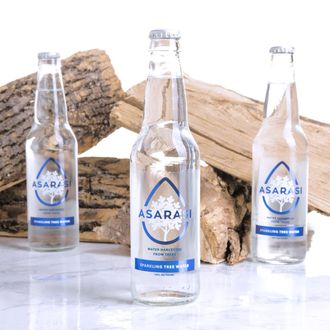
Joining the ranks of sommelier-recommended milk, single-origin beef, and single-udder butter is America’s first certified-organic water, Asarasi. It bills itself as the “purest form of water in the world,” and is a product harvested from the sap of maple trees to ensure it’s “free of all impurities.” (Immediately after which, naturally, it’s force-carbonated.) Call it what you want — more evidence that the U.S. premium-water market is out of hand? — but the truly surprising fact is that market research shows nearly 25 percent of Americans now claim they’d actually choose “organic” water over normal water.
Honestly, what this really shows is that nearly 25 percent of Americans don’t understand what “organic” means, since the USDA says organic foods must come from living things — that is, contain carbon — and water is just atoms of hydrogen and oxygen. Asarasi found a loophole because its tree water is technically drained straight from a plant. This provides a very useful selling point in post-Flint America, as the company can say it’s water untainted by chemicals.
Of course, you might still wonder, “What if the water that went into the trees contained impurities?” Spoiler: It probably did. Which is why a second water company out there, Tanzamaji, has just launched a line of “prehistoric” bottled water. They come from Tanzania’s Lake Tanganyika — believed to be the world’s second-oldest and deepest lake, which makes for wonderful marketing at the very least. “The fact that it has been isolated for millions of years means it has never been exposed to pesticides,” founder Rebecca Ruefer tells the trade mag Food Navigator. “No other human has ever consumed this water.” On its website, Tanzamaji warns, “Don’t expect ordinary water or an ordinary price.” Indeed: One 12-ounce bottle will set you back $15.




